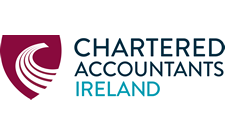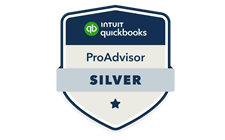Problems with paying workers in cash
You hired a couple of individuals to tidy and clear part of your premises. They’ve completed the job and asked to be paid in cash. The receipt they gave was hand written on a scrap of paper. Might this cause trouble with HMRC?

Employed or self-employed
Whilst HMRC inspections are relatively rare, in the event of one the tax officer is likely to look closely at your business’s petty cash account. Among other things they will look for payments that might be wages and therefore ought to be corresponding with payroll records. If you have little or no information about who you’re paying HMRC’s usual approach is to assume the worst and assume you’ve dodged the PAYE rules.
If paying very short-term workers, consider if the terms of their work would make them an employee. If so, put their pay through the payroll system if you pay them an agreed cash sum.
PAYE failings
Even if an individual who has worked for you isn’t an employee, HMRC expects you to keep records to a standard that means the nature of all transactions can be checked. Failing to operate PAYE is always a primary target for HMRC.
Sufficient records
HMRC has limited power to say when you should keep documents and, in some situations, what form they should take, e.g. PAYE and construction industry scheme (CIS) records. For VAT it has the power to impose special record keeping conditions, but these don’t apply to other taxes.
For all tax purposes you can store copies of invoices, receipts, etc. in electronic format, e.g. as PDFs. These can be stored on your computer or in the cloud.
Certain documents must be kept in their original form, either on paper or as an exact replica, e.g. a scanned image. Broadly, documents in this category are those which are evidence of tax deducted such as CIS statements or P60s.
Penalties
Unless you’re required to keep the original documents or copies it’s OK just to record details of transactions. In practice you’ll probably want the documents for your own benefit, especially for business transactions. But you could just keep details of what appeared on the original paperwork instead. HMRC can’t object to this.
Lack of information
Returning to the question posed at the beginning of this article. It’s a matter for you and the supplier how they are paid - HMRC doesn’t get a say. But if you want to avoid trouble ensure you have at least basic information about the person, i.e. their name and address. You should also ask them for a written (manuscript or electronic) receipt or invoice. However, the lack of such does not, as some tax inspectors would have you believe, prevent your business from claiming a tax deduction.
There’s no requirement to have a document for each and every transaction unless it’s of a type mentioned earlier, but to avoid trouble with HMRC over cash payments, make a record of the supplier’s name and address, plus the usual information: date, amount, etc.
Related Topics
-
Sharing salary with your partner
You’re a director with a substantial salary and your partner isn’t working right now. If you could split your salary with your partner the tax saving would make a real difference. How can you legitimately share your salary to improve the overall tax position?
-
HMRC bungles 2026/27 PAYE codes for pensioners
For some pensioners, the 2025/26 winter fuel payment should be collected via their 2026/27 PAYE code. HMRC has started to issue PAYE codes for the new tax year, but the extra charge is missing. What's going on?
-
Are you including too much income in your calculations?
Your business is partly exempt and you claim input tax on your mixed costs and general overheads by using the standard method based on turnover splits. What income should you exclude from the calculations?




 This website uses both its own and third-party cookies to analyze our services and navigation on our website in order to improve its contents (analytical purposes: measure visits and sources of web traffic). The legal basis is the consent of the user, except in the case of basic cookies, which are essential to navigate this website.
This website uses both its own and third-party cookies to analyze our services and navigation on our website in order to improve its contents (analytical purposes: measure visits and sources of web traffic). The legal basis is the consent of the user, except in the case of basic cookies, which are essential to navigate this website.